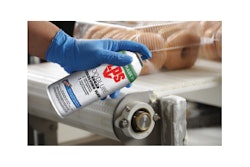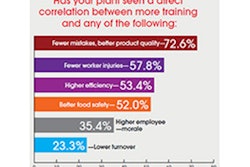| This April 22, 2010 file image provided by the Humane Society of the United States, a dairy cow too sick or injured to walk lies on the ground at the Hallmark Meat Packing Company in Chino, Calif. Several California slaughterhouses, including Hallmark, and meat-packing facilities have agreed to a multimillion-dollar settlement after allegations of inhumane treatment at their facilities led to a massive beef recall that included meat sold to the National School Lunch Program. The settlement is valued at $155 million, but the federal government and the Humane Society of the United States expect to collect only about $3 million under terms announced Wednesday Nov. 27, 2013. (AP Photo/Humane Society of the United States, File) |
SANTA ANA, Calif. (AP) — A California slaughterhouse, a meat-packing facility and two companies that provided loans to the operations have agreed to settlements after allegations of inhumane treatment led to a massive recall that included beef sold to the National School Lunch Program, according to the deal announced last Wednesday.
The parties settled the lawsuit for $155 million, but the Justice Department determined the defendants could only afford to pay a total of about $3.1 million because they were financially devastated by the recall.
In 2008, the Humane Society of the United States released grainy video taken by an undercover investigator posing as an employee that showed crippled and sick cows being kicked, shocked and shoved with forklifts at the Chino-based Westland Meat Co. and Hallmark Meat Packing Co.
The video led to the record-breaking recall of 143 million pounds of beef, including an estimated 37 million pounds that went to the school lunch program.
The so-called "downer" cows aren't supposed to be slaughtered for human consumption because of the risk of disease, and the recall prompted school districts nationwide to scour their pantries for targeted meat — although most of it had likely been consumed.
The federal government and the Humane Society ultimately filed a joint lawsuit that alleged the Chino-based businesses had run afoul of the federal False Claims Act because the man who provided the loans, the late Aaron "Arnie" Magidow, had previous felony convictions, including lying to a federal inspector.
Under the law, the plaintiffs argued, the meat facilities could not legally sell beef to the National School Lunch Program. They accused the firms of concealing Magidow's backing to win the lucrative contract.
Magidow's two companies, M&M Management and Cattlemen's Choice, and his estate agreed to pay $2.45 million in the settlement.
Westland and its owner, Steve Mendell, will pay $240,000. Donald R. Hallmark and Donald W. Hallmark settled for $304,130 in October 2012.
"They were saying that they were providing humane treatment and their contracts required it, but they weren't doing it. It's the same as someone selling the Pentagon tanks saying they can go 55 mph when they can actually go 20 mph," said Jonathan R. Lovvorn, chief counsel for the Humane Society.
"The real story here is that taxpayers lost a huge amount of money on this."
Susan Leader, an attorney representing Magidow's estate, Cattlemen's Choice, Westland and M&M Management, said her clients could have prevailed at trial but the financial cost was too great.
Westland's owner was not aware of the inhumane cattle treatment by "two bad actors" at the plant, she said, and has been ruined by the case.
The slaughterhouse was forced to close as a result.
"When he saw the video, he couldn't believe it was at his facility," Leader said of her client, Steve Mendell. "He obviously did not observe any of this."





















